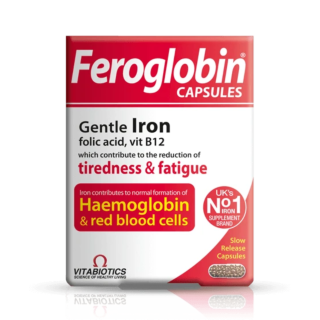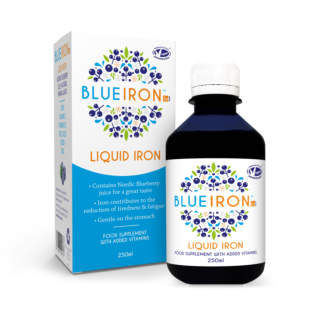19 reasons women feel tired all the time

Wondering why you’re always tired and have no energy?
It’s normal to feel tired after a late night or vigorous exercise – but feeling tired all the time might be a sign that something else is going on. Women especially are more prone to tiredness than men, and they need more sleep, too.
Pair that with things like menstruation, pregnancy and the menopause, and you have your answer as to why women are more exhausted! Long periods of low energy can even impact your work and home life, in addition to your relationships and mental health.
That’s why it’s important to find other ways of fighting that fatigue than just sleeping alone. So, if you’re eager to get to the bottom of your tiredness, keep reading our helpful guide to discover 19 reasons why women are feeling tired all the time.
Just try to keep those yawns at bay!
Reasons for fatigue in females
Whether a baby is keeping you awake at night or you’re stumbling home from a party at sunrise, getting less than the recommended 7-9 hours of sleep per night will, of course, result in tiredness.
However, the cause might not be so obvious. If you can’t pinpoint the exact reason for your low energy levels, you should talk to your doctor for advice as it could be caused by something like a thyroid issue or a side effect of your medication.
-
Lack of quality sleep
There are many things that can contribute to a lack of quality sleep, such as poor sleep hygiene (this means that you’re not practising healthy habits to encourage restful sleep), irregular sleeping patterns (for example, you work night shifts), or a disorder like restless leg syndrome which causes involuntary leg movement that can disturb both yourself and your bed partner’s sleep.
-
Sleep apnoea
Sleep apnoea is a type of sleep disorder that causes you to stop breathing while you’re sleeping, resulting in you being tired during your waking hours.
The most common form of sleep apnoea is obstructive sleep apnoea (OSA) that causes the muscles in your throat to collapse and obstruct the airway. The body will force itself awake to restore the flow of oxygen; this can disrupt your sleep multiple times throughout the night.
-
Menstruation
Some women find that in the days leading up to their period, they’re more tired than usual. In fact, you’re likely to get less REM sleep – a sleep cycle we enter when we dream – during the time of your period. Hormonal changes can make it tricker for you to get to sleep and stay asleep, too.
-
Pregnancy
It’s very common to feel tired during pregnancy, especially in the first 12 weeks. It’s caused by the hormonal changes in your body, the very same hormones that cause nausea and a surge in your emotions. The fatigue may continue into later pregnancy due to the extra weight you’re carrying.
-
Menopause
During the menopause, many women complain of feeling both physically and mentally drained. This feeling of fatigue is caused by a change in hormone levels; those pesky night sweats can also be blamed for keeping you awake, too!
-
Thyroid issues
Your body has its own internal clock, known as your circadian rhythm, which tells your body when it’s time to sleep and when it’s time to be awake.
However, when you have an overactive thyroid, you may experience night sweats and wake often to use the toilet. This is a health condition known as hyperthyroidism.
An underactive thyroid, known as hypothyroidism, presents symptoms like trouble falling asleep and not being able to stay asleep. You may also feel chilly and experience joint or muscle pain, making restful sleep difficult to achieve.
-
Being overweight
Being overweight increases your chances of developing insomnia. Not only are you more likely to have sleep apnoea (a type of sleep disorder that we discussed earlier), but the physical effects of carrying excess weight can affect your quality of sleep, all impacting how tired you are during the day.
-
Being underweight
People who are underweight often experience constant fatigue and lethargy. As your body isn’t getting enough nutrients, it can weaken your immune system, putting you at risk of developing infections.
You’re also at a higher risk of developing anaemia, meaning you aren’t getting enough iron. This can make you feel weak and drained, but we'll discuss this in more detail down below.

-
Stress
Psychological causes of tiredness, like stress, are much more common than the physical causes. Long-term stress can cause chronic fatigue and sleep disruptions, resulting in low energy levels during the day.
Stressful things, whether it’s work-related or something positive like wedding planning, can play on your mind late at night, preventing you from drifting into sleep.
-
Anxiety
Having an anxiety disorder can be both mentally and physically exhausting – it can feel like your body and mind are constantly running on overdrive! Anxiety causes a rush of hormones that can leave you feeling drained, and unfortunately, this can last even after some rest.
Anxiety and tiredness usually go hand in hand. Anxious thoughts can keep you up at night which can worsen your daytime fatigue.
-
Depression
Over 90% of people with depression report feeling tired most of the time. It’s thought that depression indirectly affects sleep, diet and exercise, and when combined together, they can make you feel drained. Around 80% of people with depression experience insomnia, but it isn’t a mere lack of sleep that causes tiredness – it’s oversleeping too, which can cause similar symptoms over time.
-
Diet
Going on a crash diet can make you feel tired as you aren’t getting enough energy-boosting nutrients to keep your body fuelled throughout the day. Moreover, eating too much sugary and heavily-processed food can increase tiredness, in addition to white bread, baked goods and high caffeine drinks.
-
Dehydration
Dehydration causes a range of symptoms, not just tiredness. When you’re dehydrated, it affects your blood pressure, decreasing the blood flow to the brain that makes you feel sleepy and fatigued.
Remember, humans can survive weeks without food, but only days without water – so it’s very important you always remember to drink up!
-
Iron deficiency anaemia
Iron deficiency anaemia is when there isn’t enough iron in your body, usually because of blood loss or pregnancy. One of the telltale signs is tiredness and a lack of energy.
You can combat anaemia by eating plenty of iron-rich foods like red meat or by taking iron tablets. If you think you’re anaemic, speak to your GP about arranging a blood test to see if your red blood cell count is normal.
-
Living a sedentary lifestyle
Living a sedentary lifestyle is easy – especially if you’re stuck in your office chair five days a week! But studies show that leading a sedentary lifestyle, meaning you do little to no exercise, can increase tiredness during the day.
Physical activity has been shown to improve symptoms of fatigue in some people – so why not take a walk on your lunch break or invest in a standing desk?
-
Side effects of medication
Sleepiness is a common side effect in many medicines, like antihistamines, antidepressants, sleep aids and beta blockers just to name a few. If you’ve recently started a new medication and you’ve noticed a change in your energy levels, you should speak to your GP.
They may be able to switch-up your medication or alter your dosage to make the tiredness easier to deal with. Sometimes, it can just take a while for your body to adjust!
-
Drinking too much alcohol
You might find it easier to drift off into sleep after having an alcoholic drink, but the quality of your sleep is actually suffering from it!
When you consume alcohol, it can lower the amount of REM sleep you get which can leave you feeling tired and unable to concentrate the following day.
-
Chronic fatigue syndrome
Chronic fatigue syndrome, otherwise known as myalgic encephalomyelitis (ME), is a long-term medical condition that features a wide range of symptoms, the most common being extreme tiredness. It can be a life-changing condition that can make daily activities very challenging.
There isn’t a specific test to diagnose chronic fatigue syndrome. It’s diagnosed based on your symptoms and by ruling out other conditions; you may also be asked to have a blood and urine test.
-
Vitamin D deficiency
There’s some research to suggest that a deficiency in vitamin D causes fatigue, and that by supplementing vitamin D, symptoms of tiredness are shown to improve.
We all need an extra boost of vitamin D in the autumn and winter months, so if you’ve noticed a change in your energy levels as the dark, cold nights draw in, why not invest in a vitamin D supplement to see if you notice a change?

It’s hard to feel like doing anything worthwhile when you’re tired. But if you’re suffering from a long-term lack of energy, it could be negatively affecting your work and home life. So, don’t rely on caffeine! Start digging for the real reason behind your fatigue and make a change if you can.
Whether it’s weight loss, diet changes, healthy sleep habits or meditation, it’s important to remember that you’re not alone – if you need any further information on why you might be fighting with fatigue, visit the NHS website or book an appointment with your GP.







